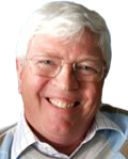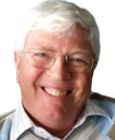Spirituality
Spirit-Matter! Keeping Body & Soul Together
Learning from indigenous spirituality
Posted October 29, 2014
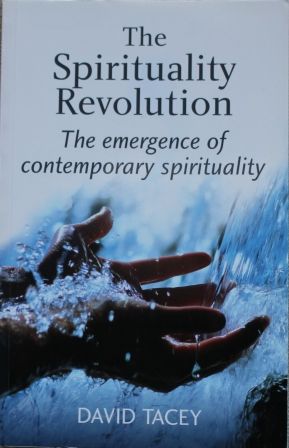
‘Synchronicity’ is a word, coined by Carl Jung, for meaningful coincidences. One of these in my life involved, in 1979, meeting David Tacey in Adelaide, Australia, where I was living and training to become a psychiatrist. David, I and others started the Adelaide Jung Group, organized workshops for interested people and became friends.
After I returned to London a few years later, we lost touch; but in 2004 his book ‘The Spirituality Revolution: the emergence of contemporary spirituality’ was published, and I was able to contact David again. We have been able to meet up in London more than once since.
David’s wonderful book seems to have grown out of matters we used to discuss in the Jung group 25 years ago. Jung, of course, was fascinated by indigenous traditions, beliefs and ways of life. In his book, David writes of his encounters with the first people of Australia from the age of twelve when his family moved to Alice Springs.
“Here, in a place long ruled by Aboriginal law and cosmology, my Western ideas of divinity and reality were really challenged and transformed by the local indigenous traditions.”
David notes, in particular, the spiritual relationship of Australian Aboriginal people with the earth, and suggests we have much to learn from indigenous spirituality, as part of the current ‘spirituality revolution’.
Of a similar mind is Father Diarmuid O’Murchu, a liberal-minded Roman Catholic priest, international lecturer and author of several books influencing how people think about religion, spirituality and science. I am fortunate to have spent a ‘day of reflection’ recently in a group led by Father Diarmuid on exactly this subject.
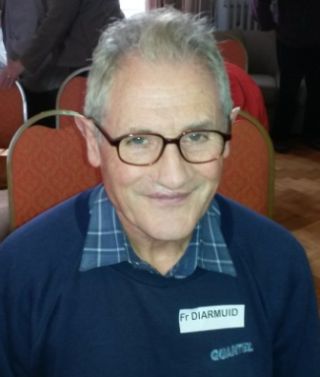
Father Diarmuid O'Murch
His first point was to describe the ‘escape’ spirituality of his early Christian life, according to which salvation would be found in a world beyond this one. Worldliness and sin were equated, and the spiritual life envisaged as ideal involved a prayer life turned exclusively towards heaven. “This”, he told us, “Was about me trying to get it right with God”. In his tradition, they were told that the goal could only be achieved successfully by priests, monks and nuns. Spirituality could only be seen as a product of the parent religion. Also, each religion – and each denomination or sub-division within each religion – claimed unique access to God and heaven.
“This is a clearly inadequate account of spirituality for the 21st century”, Father Diarmuid said; and we can agree that it has necessarily proved divisive, leading to increasing discord and fragmentation, setting the scene for intolerance and actual conflict.
However, in the light of the spirituality revolution today, ‘perfection’ consists not of a split between soul and body, but personal and collective wholeness and integrity. The liberating alternative is a form not of 'escape' but of ‘engaged’ spirituality, a spiritual sensibility that embraces the earth and all God’s creation. According to this wisdom, all humanity – each and every person, past, present and future – is interconnected. We are co-creators in a sacred, organic process. “Babies do not come into the world”, Father Diarmuid said, smiling, his eyes twinkling bright. “They come out of the world… Everything throughout the cosmos is essentially related. Energy – the basis of matter – is ‘spiritual power’. Through the patterns of nature, we see that energy is not random: it unfolds. Co-operation, rather than competition, is the fundamental imprint of nature.”
During the lunch-break, we had the chance to look at an exhibition of art and artefacts from, or inspired by, indigenous people throughout the world, including the first nation peoples of North America, Kalahari Bushmen and Australian Aboriginal people. Later, Father Diarmuid spoke further about indigenous traditions, quoting another friend of mine, Steve Taylor:
“Primal peoples respect nature because they see it as the manifestation of Spirit. Since they see themselves as manifestations of Spirit, too, they feel a sense of kinship and connection with nature, a sense of sharing identity with it, which contrasts with the sense of ‘otherness’ to the natural world which we normally experience… Primal peoples see themselves as custodians of the land, looking after it on behalf of the Great Spirit”. (Steve Taylor, ‘The Fall’, 2009)
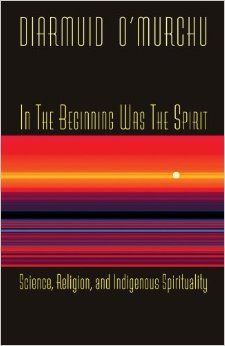
Fr. Diarmuid's book on Indigenous Spirituality
The ‘Great Spirit’ is an empowering breath, a creative energy, forerunner of all, a unifying essence, giving priority not to the individual personal, much less to the impersonal, but only, supremely, to the transpersonal. A person is therefore not only autonomous, rational and independent, as the Greek philosophers defined it, Father Diarmuid told us. We are also, at all times, the sum of our relationships… “And that is what gives us our identity!”
“Sacredness has neither beginning nor end”, he continued. “Ultimate mystery is intimately close. Our earthiness is the medium which connects us with the divine. We do not worship the Great Spirit; we co-create with it. Ethics and morality are about relating rightly with all creation. Prayer is about expressing Spirit, rather than addressing God.”
One of my own quotes goes like this: “Spirituality links the deeply personal with the universal”. (Larry Culliford, ‘The Psychology of Spirituality’, 2011; p 20) On this point, I am happy to say, Father Diarmuid, David Tacey, Steve Taylor and I all seem to agree. The consequences for everyone, when we reflect on it, are both enormous and wonderful. We are here to help each other recognize these implications and bring them to marvellous fruition as we proceed in our lives. The Great Spirit, Father-Mother God and the very laws and patterns of the universe are there to give us energy, guidance, encouragement and hope… Of course, the earliest, indigenous people of the earth have known that all along!
Copyright Larry Culliford
Larry’s books include ‘The Psychology of Spirituality’, ‘Love, Healing & Happiness’ and (as Patrick Whiteside) ‘The Little Book of Happiness’ and ‘Happiness: The 30 Day Guide’ (personally endorsed by HH The Dalai Lama).
Keep an eye open for Larry’s next book, ‘Much Ado About Something: A Vision of Christian Maturity’, to be published by SPCK London in 2015.
Listen to Larry’s Keynote Address to the British Psychological Society’s Transpersonal Section via You Tube (1 hr 12 min).
See Larry interviewing JC Mac about ‘spiritual emergence’ on YouTube (5 min).
